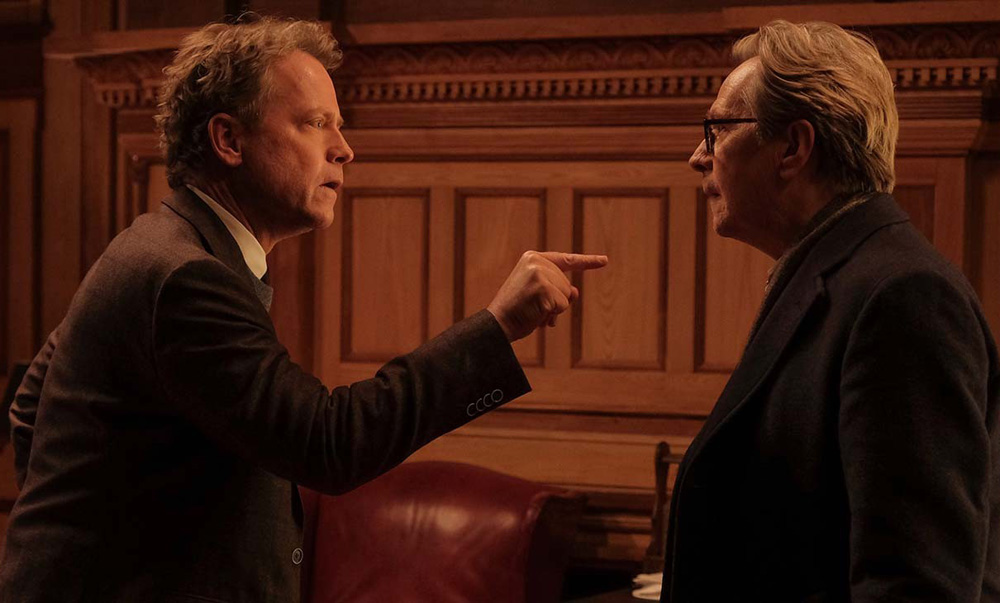There isn’t much that could be considered comforting about “Crisis” as writer/director Nicholas Jarecki finds an intriguing way to contemplate the systemic failure to curb opioid addiction when too many remain incentivized to allow it to continue, but you do feel you’re in good hands when it takes the form of the kind of deep bench ensemble drama that has been largely missing since the turn of the century, adopting the approach of parallel storylines that were so once popular, yet leaving it free of the contrivances and grandiosity that eventually made them so tiresome. In the best way possible, “Crisis” always feels like it’s working on a more intimate scale in spite of opening chase scene at the U.S. Canadian border where a manhunt is on for a drug runner attempting to make his escape.
The bombast is an appropriate introduction when the showy takedown of one low-level hood can be presented to the public as a major success, but is hardly a blip, given the real money is in manufacturing the drugs. Attention quickly turns to the far more mundane activity at Northlight, a pharmaceutical company preparing the rollout of a new pill known as Klaralon, touted as a breakthrough painkiller when it’s nowhere near as addictive as oxycontin or fentanyl. None of the main characters in “Crisis” are ever in danger of having their health compromised by opioids, but they are all slaves to it as Jarecki drops in on Tyrone (Gary Oldman), the doctor presiding over the clinical trials has discovered alarming side effects, potentially jeopardizing its march to market, Claire (Evangeline Lilly), a former addict who is reminded of her old pain when her teen son disappears and is said to have succumbed to opioids himself and Jake (Armie Hammer), a DEA agent who’s driven personally by his sister’s struggle with drugs, but finds himself deeper and deeper in a trafficking ring, told to speed up the operation so the department can get the notch on their belt.
Just as Jarecki brought the impact of financial grift into stark human terms in his narrative debut “Arbitrage,” “Crisis” cleverly avoids building the issue at hand into something too overwhelming to take on, showing how people are shaped by the culture of opioids even if not directly affected by it. Greed is a natural villain, infecting not only the employees of Northlight but the university where Tyrone teaches and his tenure is up for review once the school president (Greg Kinnear) comes to believe their fundraising could be affected by the unsatisfactory trial results. Yet rather than suggesting that anyone has the power to change the system all by themselves, systemic rot is countered with one moral stand at a time with the considerable intrigue occurring in each character finding their line. When there’s no urgency seen at the top, “Crisis” brings it out at the individual level, impressively feeling personal even when it isn’t particularly emotional.




